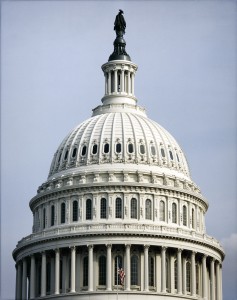 Senators Brown, Wyden, Merkley, and Menendez Call on Administration to Demonstrate Transparency by Posting “Detailed Information” and “Consistent Updates” Regarding TPP Proposals
Senators Brown, Wyden, Merkley, and Menendez Call on Administration to Demonstrate Transparency by Posting “Detailed Information” and “Consistent Updates” Regarding TPP Proposals
PRESS RELEASE FROM U.S. SEN. SHERROD BROWN’S OFFICE
Press Contact: 202 – 224 – 3978
Monday, June 25, 2012
WASHINGTON, D.C.— With negotiations on a proposed Trans-Pacific Partnership (TPP) free trade agreement continuing next week in California, a group of senators are urging the Administration to increase transparency of the negotiations to ensure, among other issues, that all relevant stakeholders in matters involving internet freedom are officially consulted. U.S. Sens. Sherrod Brown (D-OH), Ron Wyden (D-OR), Jeff Merkley (D-OR), and Robert Menendez (D-NJ) called on United States Trade Representative (USTR) Ron Kirk to broaden the advisory group on intellectual property rights and to provide more detailed information on TPP proposals.
“It’s troubling that corporate CEOs often have better access to information about trade negotiations than the American people’s elected representatives—or the American people themselves,” Brown said. “We must learn from the lessons of prior trade deals, and increase transparency when it comes to the ongoing negotiations regarding the Trans-Pacific Partnership—an agreement that may become a template for all future trade agreements.”
“As the scope of trade agreements expand, their potential impact on Americans’ lives expands as well,” Wyden said. “The TPP negotiators are developing policies on issues with significant public interest like how an agreement may promote or erode Internet freedom. It is unacceptable that the development of these policies is done in secret and it is unfortunate that American trade negotiators communicate more freely with foreign nations and corporations than with the American public and their elected representatives.”
Many U.S. trade agreement texts are not made public until they are finalized and signed, preventing any significant changes to be made before Congress considers the agreement. The letter to USTR Kirk emphasized the importance of negotiations regarding copyright language and internet freedom. The debate on the Stop Online Piracy Act (SOPA) and Protect IP Act (PIPA) last year demonstrated the far-reaching implications of intellectual property proposals, and the importance of public feedback. The senators proposed expanding the Industry Trade Advisory Committee (ITAC) to include a broad swath of public stakeholders—not just trade officials—and posting summaries of TPP terms to keep the public informed of potential proposals.
Ambassador Ron Kirk
United States Trade Representative
600 17th Street NW
Washington, DC 20508
Dear Ambassador Kirk:
We write regarding the ongoing Trans-Pacific Partnership (TPP) negotiations, a regional free trade agreement proposal touted as a model for all future U.S. trade and investment agreements. We are concerned that this process has excluded both Members of Congress and key stakeholders. As a result, groups essential to the success and legitimacy of any agreements are not being provided the opportunity to provide meaningful input on negotiations that have broad policy ramifications.
In the past, most U.S. trade agreement texts have not been made available until after they were signed. As a result, changes were all but impossible. If Congress and the broader public are not informed of the exact terms of the agreement until the conclusion of the process, then the opportunity for meaningful input is lost. The lack of transparency and input makes passage of trade agreements more contentious and controversial.
Extensive consultations with Congress and stakeholders are essential because of the unprecedented scope of these negotiations. Indeed, the negotiations USTR is pursuing will create binding policies on future Congresses in numerous areas where there is significant public interest, including policies related to labor, environment and natural resources, land use, food, agriculture and product standards, intellectual property rights, state-owned enterprises and government procurement policies, as well as financial, healthcare, energy, telecommunications and other service sector regulations. In an effort to ensure full public disclosure and consultation, we request that the USTR provide the public with detailed information and consistent updates on what USTR is seeking in the TPP on these matters of broad public interest.
One additional area of concern is copyrights. The significant concerns that bills like Stop Online Piracy Act (SOPA) and Protect IP Act (PIPA) met from the public, underscore how unsettling such matters can become without a broad consultative process. The copyright language in the TPP may not mirror the approach of SOPA and PIPA, but due to the secrecy surrounding the TPP there is no guarantee that it will not. Since the terms will only be made public after an agreement is signed, the stakes are too high to exclude important stakeholders and Congress from the negotiation process.
Therefore, we request that you expand the consultation process by broadening the scope of the Industry Trade Advisory Committee (ITAC) for Intellectual Property Rights to include key stakeholders advocating for internet freedom as well as right-holders. A separate committee to address these concerns should be given consideration as well.
We believe these recommendations would demonstrate a commitment to this Administration’s goals of making the federal government more transparent and responsive. We look forward to discussing these issues with you.
###




